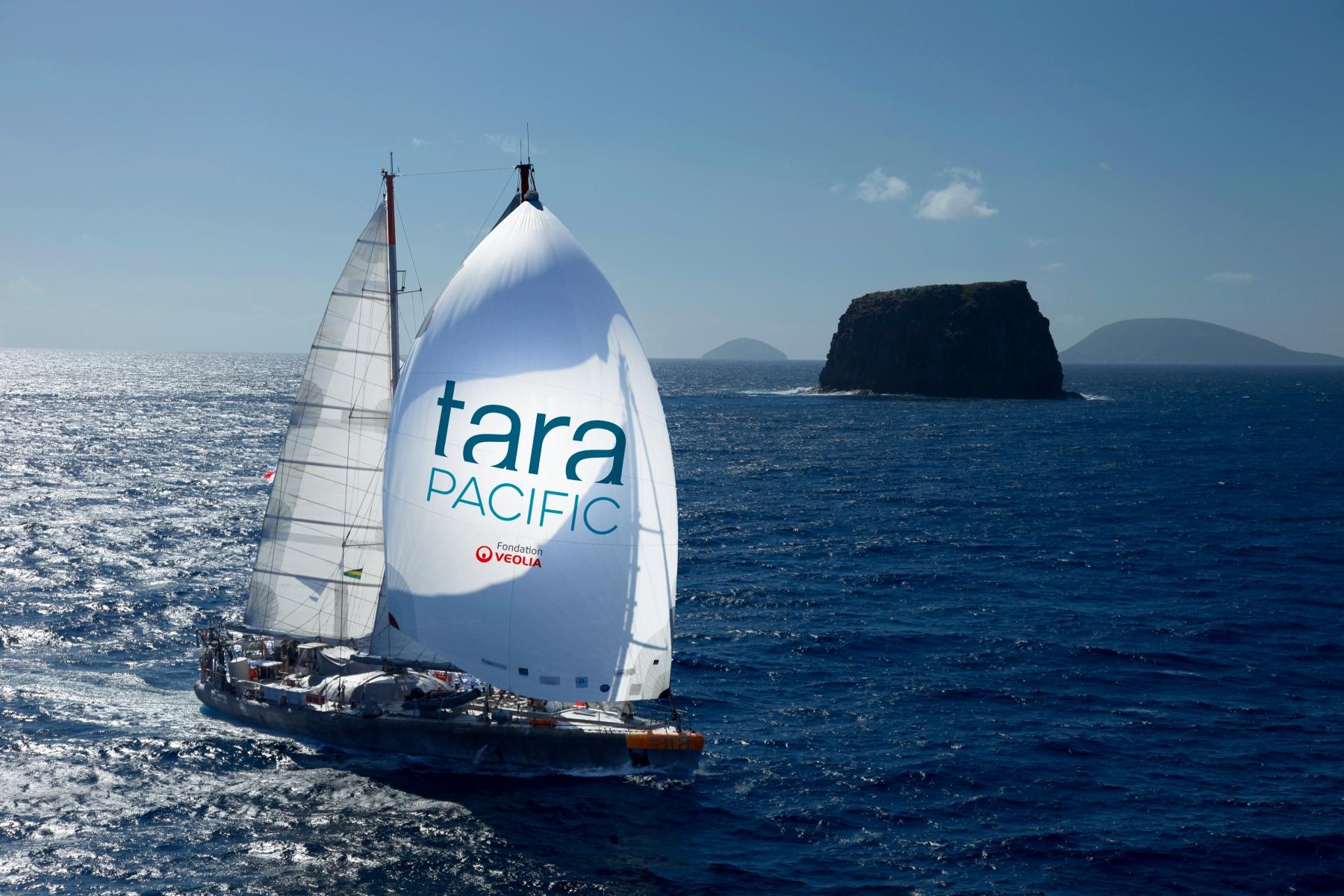
Over a year after its departure, the schooner Tara has already travelled 50,000 km, visited 15 countries, and collected 15,000 samples from 17 sites during 2,000 dives. The analysis of the samples is producing an unprecedented database of coral reefs, and providing a better understanding their biodiversity, health, and capacity to adapt to climate and environmental changes.
Halfway point
The expedition’s scientists have observed massive coral bleaching throughout the Pacific: with the exception of some sites that are still clear, as in the Wallis and Futuna Islands, on other sites 30-90% of the coral cover is affected:
- 30-50% in some of the Tuamotu islands in Polynesia
- nearly 70% in the Pitcairn Islands
- 90% in Samoa, where a large proportion of the coral colonies are already dead
- 70% in Okinawa, Japan.
"The more the water temperature rises above the expected normal, and the longer the exposure times at these high temperatures, the greater the bleaching is," says Serge Planes, researcher at CNRS and scientific director of the mission.
Identifying the most resilient coral reef ecosystems with high levels of biodiversity
"The scientific team is testing a technique for DNA sequencing of species at the sampling sites compared to those already known," says Quentin Carradec of Genoscope (CEA). Then, in the laboratory, the sequencing characterizes all the microorganisms associated with the coral, the reef fish, and the surrounding water. This database makes it possible to compare the reefs and to verify the hypothesis which suggests that a coral ecosystem with high levels of biodiversity is more resilient and develops better responses to stresses related to global warming.
Tara Pacific in figures
- 2 year expedition (2016 – 2018)
- 35,000 samples taken
- 40 archipelagos and 10 sites studied
- 30 countries visited with 70 stopovers and 100,000 km covered
- 100 scientists from 23 institutions and research laboratories
The schooner, which is now on the Great Barrier Reef in Australia, will continue its mission in New Caledonia, the Solomon Islands, Papua New Guinea, Indonesia, the Philippines, Palau, China, Japan, and Hawaii, with its return scheduled for October 2018 in Lorient.
Each stage is an opportunity for meetings between scientists and the general public.

